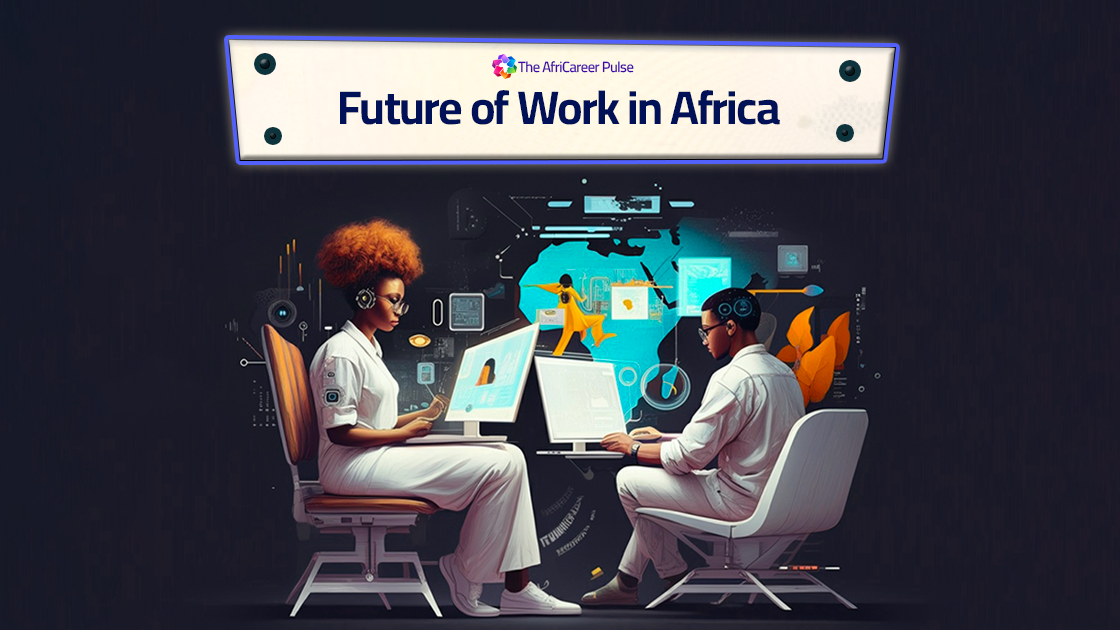
Africa is on the cusp of a significant transformation in the world of work, driven by technological advancements, demographic shifts, and changing global economic trends. As the continent’s population continues to grow, with projections suggesting it will reach 2.5 billion by 2050, the need for innovative and adaptable workforce solutions becomes increasingly pressing. In this article, we will explore the future of work in Africa, highlighting key trends, challenges, and opportunities that will shape the continent’s workforce.
Trends Shaping the Future of Work in Africa
- Digitalization and Automation: The rapid expansion of digital technologies, including artificial intelligence (AI), blockchain, and the Internet of Things (IoT), is transforming the African workforce. Automation is likely to displace certain jobs, particularly those involving repetitive tasks, while creating new opportunities in fields like data science, software development, and cybersecurity.
- Gig Economy and Remote Work: The gig economy is gaining traction in Africa, with platforms like Uber, Jumia, and Freelancer.com offering flexible work arrangements. Remote work is also on the rise, enabling Africans to access global job markets and participate in the digital economy.
- Entrepreneurship and Small Business Growth: Africa is witnessing a surge in entrepreneurship, with many startups and small businesses driving innovation and job creation. Governments and private sector organizations are investing in initiatives to support entrepreneurship, such as incubators, accelerators, and funding programs.
- Skills Development and Training: As the job market evolves, there is a growing need for workers to acquire new skills, particularly in areas like technology, data analysis, and digital marketing. Governments, educational institutions, and private sector organizations are investing in training programs to upskill and reskill the workforce.
Challenges Facing the Future of Work in Africa
- Job Creation and Unemployment: Despite economic growth, many African countries struggle to create sufficient jobs to absorb the growing workforce. Unemployment rates remain high, particularly among youth, and many workers are forced to engage in informal or precarious work.
- Skills Mismatch: The education system in many African countries often fails to provide students with the skills required by the modern job market. This mismatch between skills supply and demand hinders the employability of graduates and limits the growth of industries.
- Infrastructure and Digital Divide: Africa’s infrastructure, including internet connectivity, electricity, and transportation networks, remains underdeveloped in many areas. This digital divide hinders the adoption of digital technologies and limits access to global markets.
- Regulatory Frameworks: Many African countries lack regulatory frameworks that support the growth of new industries and job types. Governments must adapt laws and regulations to accommodate the changing world of work.
Opportunities for the Future of Work in Africa
- Demographic Dividend: Africa’s growing population presents a significant opportunity for economic growth, provided that governments and private sector organizations invest in education, skills development, and job creation.
- Digital Innovation: Africa is home to a thriving digital innovation ecosystem, with many startups and entrepreneurs developing solutions to address local challenges. This innovation has the potential to drive economic growth and create new job opportunities.
- Regional Integration: The African Continental Free Trade Area (AfCFTA) agreement offers opportunities for regional integration, trade, and job creation. By reducing trade barriers and improving infrastructure, African countries can increase economic cooperation and unlock new opportunities for growth.
- Global Partnerships: Africa can leverage global partnerships to access new technologies, markets, and expertise. Collaborations between African governments, private sector organizations, and international partners can drive economic growth, create jobs, and promote skills development.
Conclusion
The future of work in Africa is complex and multifaceted, shaped by technological advancements, demographic shifts, and changing global economic trends. While challenges like job creation, skills mismatch, and infrastructure development persist, opportunities abound for innovation, entrepreneurship, and regional integration. To unlock the potential of the African workforce, governments, private sector organizations, and international partners must invest in education, skills development, and job creation, while adapting regulatory frameworks to accommodate the changing world of work. By doing so, Africa can harness its demographic dividend, drive economic growth, and create a brighter future for its people.
Recommendations
- Invest in Education and Skills Development: Governments and private sector organizations should invest in education and skills development programs that focus on emerging technologies, digital skills, and entrepreneurship.
- Promote Digital Innovation: Governments should create an enabling environment for digital innovation, including incubators, accelerators, and funding programs for startups and entrepreneurs.
- Foster Regional Integration: African countries should implement policies to promote regional integration, trade, and job creation, including reducing trade barriers and improving infrastructure.
- Encourage Global Partnerships: Governments and private sector organizations should leverage global partnerships to access new technologies, markets, and expertise, driving economic growth and job creation.
By implementing these recommendations, Africa can unlock its potential, drive economic growth, and create a brighter future for its people
